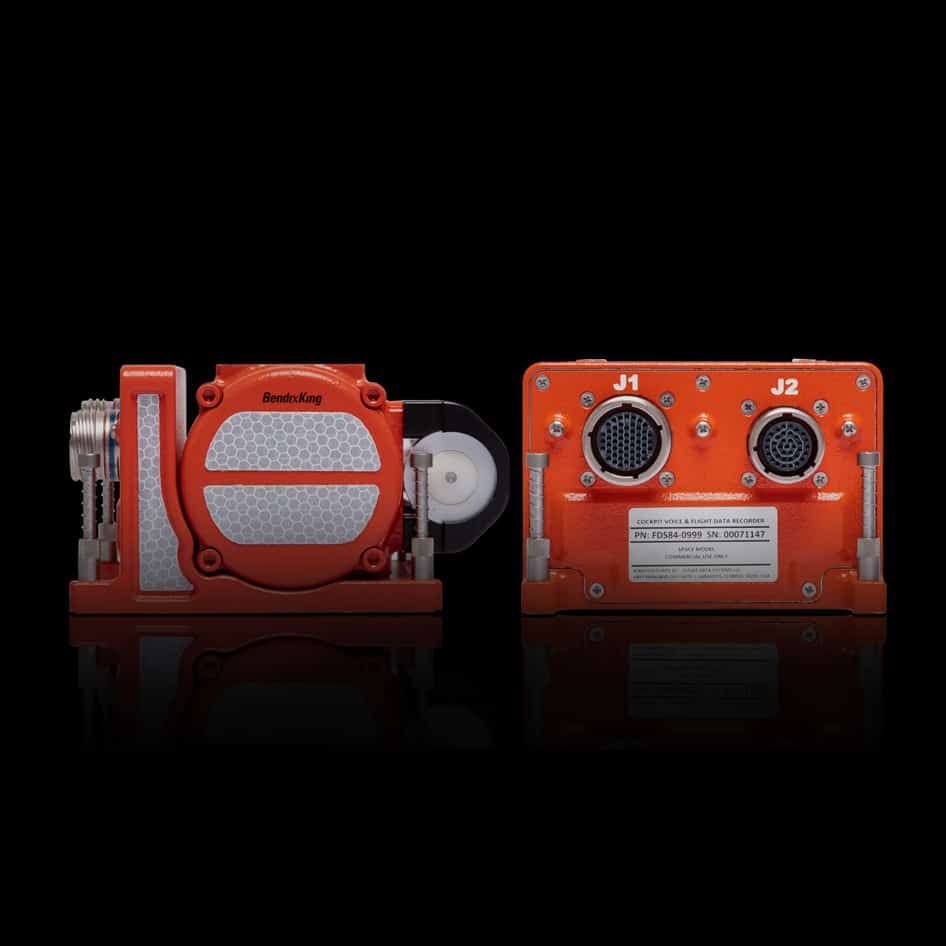
The BendixKing AeroCorder 100 Flight Data Recorder weighs 4.5 pounds and is an option for use on helicopters. Photo: BendixKing
The National Transportation Safety Board is calling on helicopter builders to equip turbine-powered rotorcraft with crash-resistant flight data recorders and crash-protected image recorders to provide data, audio and images to improve crash investigations.
In a safety recommendation report issued on June 2, the NTSB asked Airbus Helicopters, Bell, Leonardo, MD Helicopters, Robinson Helicopter Company, and Sikorsky to embed such systems on their helicopters.
The NTSB said that “the Federal Aviation Administration has not implemented a series of NTSB recommendations made in 2013 and 2015.”
“Those recommendations were issued after NTSB investigators found the lack of recorded data hindered their understanding of several crashes that could have serious flight safety implications,” according to the NTSB.
The NTSB’s call follows an urging by Senate Minority Leader Chuck Schumer, D-N.Y., last June for all helicopters to be equipped with “black boxes” in the wake of a fatal crash in midtown Manhattan of an Agusta A109E helicopter that did not feature a flight data recorder.
While helicopters meeting specific criteria established by the FAA are required to have crash-resistant systems to record flight data and cockpit audio, none are currently required to have an image recording capability, the NTSB said.
Despite the lack of action from the FAA, some helicopter operators have equipped their aircraft with recording systems, including image recording capability, even though they are not required to do so.
“The more information we have, the better we can understand not only the circumstances of a crash, but what can be done to prevent future accidents,” Dana Schulze, the director of the NTSB Office of Aviation Safety, said in a statement. “We are asking that currently available recording technology be put to use in a way that will improve aviation safety.”
The NTSB cited seven helicopter investigations between 2011 and 2017 in which the lack of access to recorded data impeded their ability to identify and address potential safety issues.
Although the FAA has declined to mandate recorders on those helicopters not already required to have them, the agency said that it has encouraged operators since 2005 to install the equipment on a voluntary basis. For its part, however, the NTSB said that turbine-powered helicopters in 86 percent of 185 accidents that NTSB investigated between 2005 and 2017 had no recording equipment installed and that the FAA actions have thus been ineffective.
In addition to asking manufacturers to install crash-resistant recorders on newly built helicopters, the NTSB also asked them to provide a means to retrofit their helicopters with crash-resistant systems capable of recording flight data, cockpit audio and images on their helicopters not already so equipped.